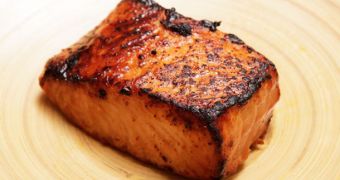Gary Lamberti, a professor and chair of biology presently working with the University of Notre Dame, now claims that, after analyzing both the chemical compounds salmons living in the Great Lakes are exposed to, and the migratory routes for this species, he has found that these fish sometimes end up transporting contaminants upstream.
What worries Gary Lamberti is the fact that, should this lead to other fish species' becoming exposed to harmful chemical components, the people feeding on them might also be affected sooner or later.
“All the Great Lakes have some level of pollution, especially near cities - Chicago, Detroit, Cleveland. There are far fewer pollutants now than over the past century, but many are persistent. There are hot spots, and Lake Michigan has a lot of them—heavy metals, mercury, organic pollutants like PCBs,” Gary Lamberti explains.
After being exposed to these chemical compounds, which make their way into their tissues, the salmons swim upstream, where they spawn and die.
As they decompose, the contaminants trapped inside their bodies are freed, and make their way into the surrounding environment.
From this moment on, it is only a matter of time until fish species such as the brown trout, the brook trout and the panfish begin to accumulate them in their bodies, Phys Org explains.
As Gary Lamberti puts it, “They spawn, die in the stream where they spawn, and then leave their contaminant load in the stream. Stream fish eat salmon eggs, and may also eat carcass tissue as they decompose.”
This researcher is particularly worried about the fact that, despite the US Food and Drug Administration's keeping a close eye on the salmon collected from the Great Lakes for human consumption, there are presently no rules and regulations concerning the threats that other species which share their natural habitats with the salmons pose to public health.
“But there are no warnings for stream fish—that's the specter. If you're eating fish from a stream with a lot of salmon, you might as well be eating the salmon. I would err on the side of caution when eating any fish from a salmon river,” Gary Lamberti says.

 14 DAY TRIAL //
14 DAY TRIAL //